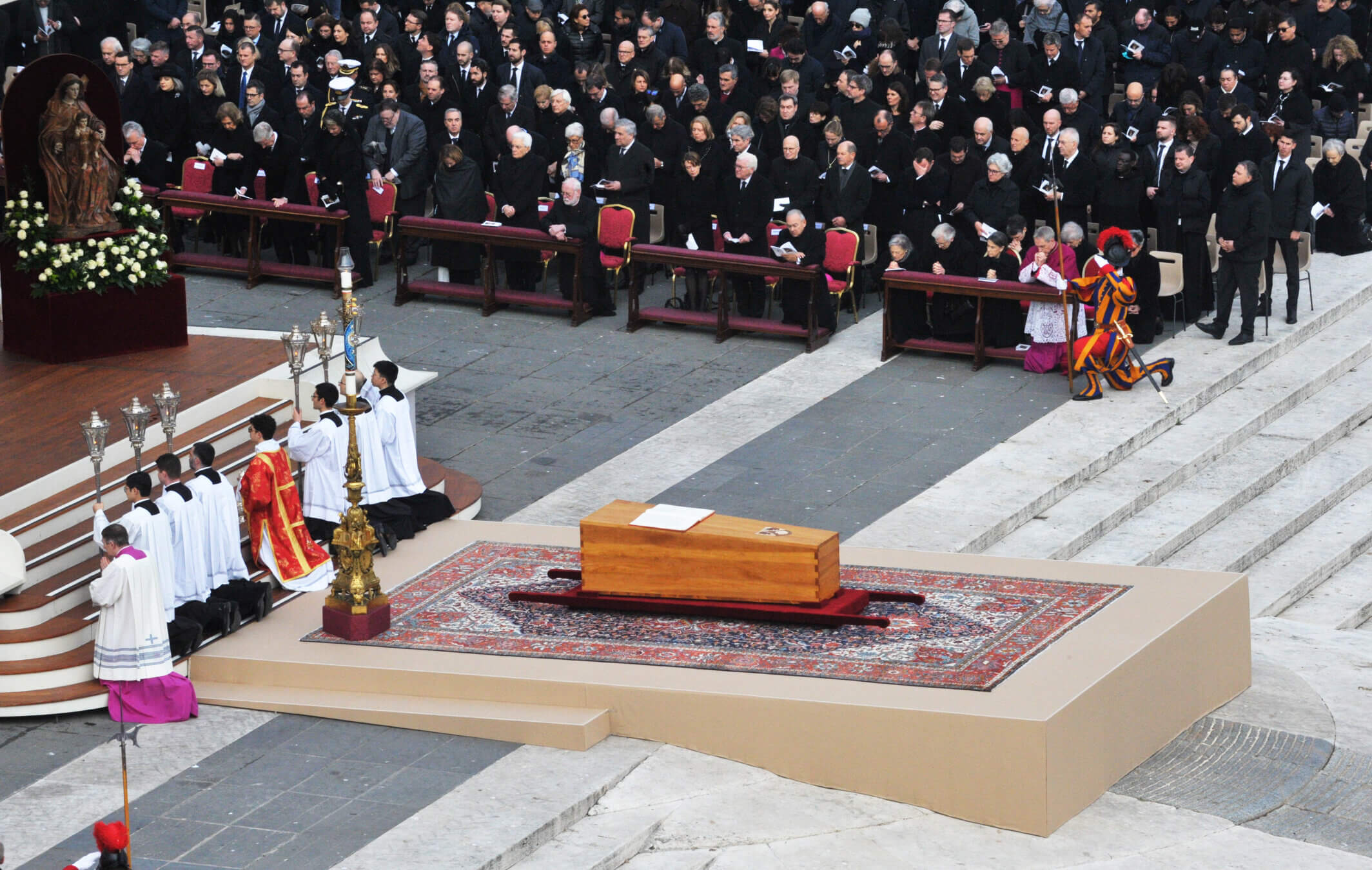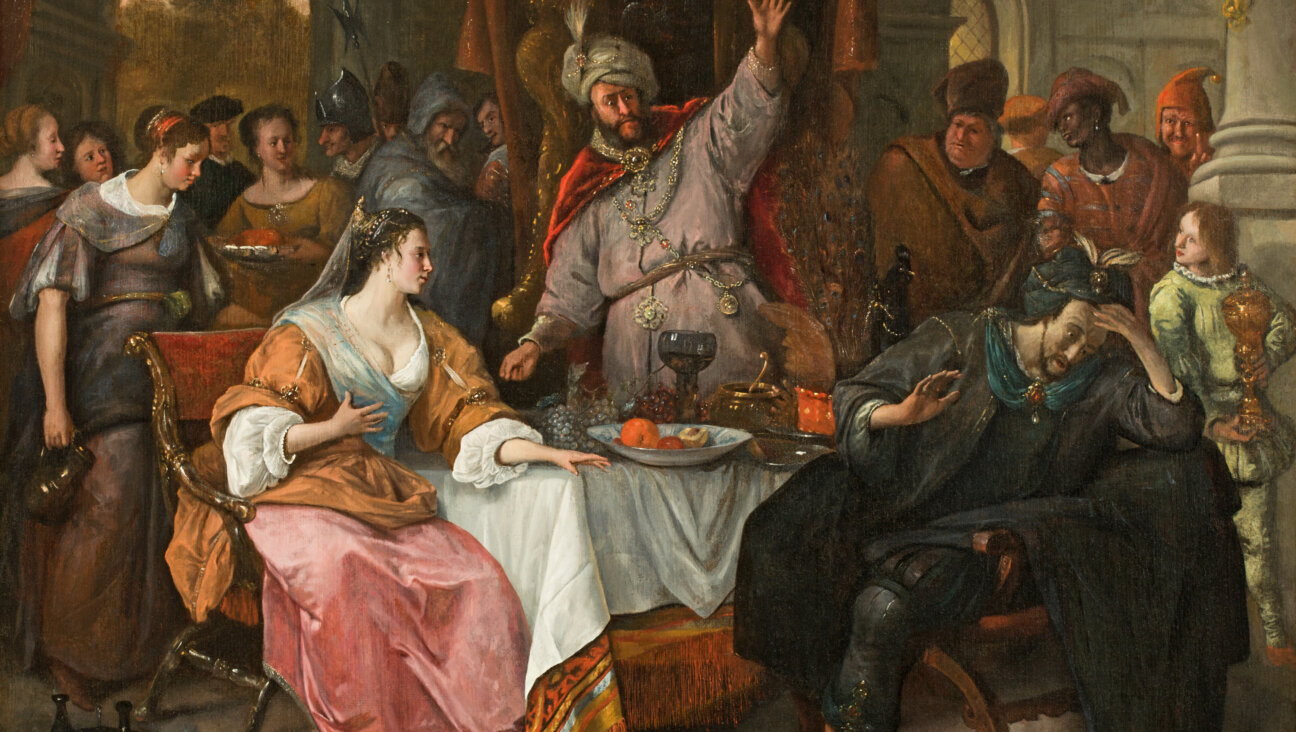After Pope Benedict’s death, who will claim his legacy?
Traditionalist Catholics, who reject updates to the Church’s doctrine, embraced the conservative former pope

Benedict XVI’s coffin in Vatican City. Courtesy of Getty Images
Pope Benedict XVI was the figurehead of conservative Catholicism. When the conclave of cardinals elected him in 2005, many saw him as a shift away from an increasingly liberal progression of popes since the mid-20th century. It was only a momentary reversal of the liberalizing tide in the Vatican — Benedict resigned from the papal office in 2013, the first pope to step down since 1415, when Gregory XII resigned to end the Western Schism, and Pope Francis’s term thus far has been markedly liberal — but some Catholics refused to let go of the hope of Benedict’s traditionalism.
In fact, some Catholics refused to let go of him entirely, insisting that he was still pope. Known as benevacantists, they are a fringe movement within a larger traditionalist movement. But they’re not the only ones within the “tradcath” movement, as it is known, who are laying claim to Benedict’s legacy.
In the wake of Benedict’s death, Catholics are debating the controversial pope’s legacy. And tradcaths are trying to claim it, framing Benedict as a conservative figure who supported Church doctrines such as Latin Mass. By upholding him as their patron saint, they lend legitimacy to their own, more controversial beliefs, including the antisemitic portions of Catholic doctrine and liturgy.
Tradcaths are united by their rejection of some or all of the Second Vatican Council, a series of doctrinal changes released in 1965, meant to update Church practices and beliefs to make Catholicism more modern and accessible. These included, most famously, restricting the use of the centuries-old Latin Mass in favor of services in the local language. And Vatican II also controversially issued a series of documents on religious liberty and acceptance, including the Nostra Aetate, which asserted that Jews cannot be held responsible for the death of Jesus.
Not all traditionalists reject all of Vatican II; many just prefer a Latin Mass. But online, the tradcath movement has a large amount of traction; somehow something as pedantic as traditional Catholicism, with all of its arcane theological and liturgical nitpicking, has spawned an entire world of memes. And, like many movements that find footholds online, the most radical factions are often loudest.
The most extreme tradcaths, known as sedevacantists, believe that the changes of Vatican II are themselves so heretical that they reveal that the current Vatican has strayed from God, and the current pope is false and holds no divine authority. These radical tradcaths, or sometimes “rad trads,” hold conservative beliefs that include antisemitic doctrines such as Jewish deicide.
Some tradcaths saw Benedict as their hope to return Catholicism to its traditional roots, with all of the pomp and circumstance and antisemitism that carries. Though he was actually involved in creating Vatican II before he became pope, once he assumed the highest office, he removed restrictions on Latin Mass — including a controversial prayer for the conversion of Jews.
He also reinstated several excommunicated bishops from the Society of Saint Pius X, a traditionalist group that rejects Vatican II, including a bishop who had made repeated antisemitic statements and denied the Holocaust. Some traditionalists embraced these decisions as a signal that Benedict was on their side.
While Latin Mass is a rallying point and unifier for tradcaths, the movement to reject Vatican II often goes much deeper. Some traditionalists are largely focused on Latin Mass and similar aesthetic issues, yearning for the grandeur of old-school services. But many are just as focused on the doctrinal changes, upset at Vatican II’s focus on religious liberty and ecumenism, believing that it contradicts the belief that Catholicism is the ultimate, and only, true religion.
Online, in subreddits and on YouTube, tradcaths discuss, at length, the belief that Jews have indeed rejected God, and detail supersessionist theologies about Catholicism eradicating Judaism. They harp on the need to reject modernity and acceptance, sometimes even going so far as to glorify the Crusades, joking about the need for another round of religious wars.
Benedict himself made a point of rejecting sedevacantism — perhaps anticipating that his retirement would encourage schismatic factions. And some tradcaths reject the former pope for not being strict enough. But since his death, a viral statement from his secretary about the former pope’s love of Latin Mass and lack of support for Francis’s decision to again limit its use is making the rounds online in tradcath circles and beyond.
With Benedict’s death last week, the benevacantists can, of course, no longer claim he is still pope. But that doesn’t mean they can’t claim his legacy. Benedict may not have supported traditionalist beliefs more radical than preserving the Latin Mass; by most accounts, he was more concerned with theological scholarship than he was with rabble-rousing politics. With the powerfully online tradcath movement laying claim, Benedict might also become associated with its darker underbelly — and he’s already halfway to being their patron saint.






















